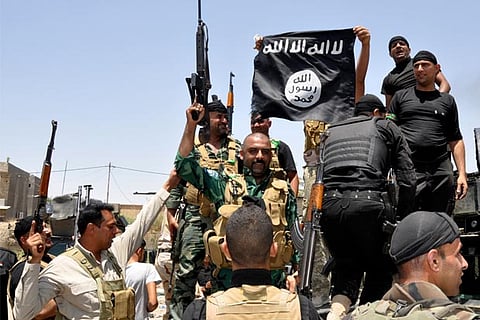

Islamabad
Even as the majority of over 600 ISIS Khorasan operatives, who, along with hundreds of their family members, surrendered in Afghanistan last month, are from Pakistan, the Imran Khan government has remained tight-lipped about it.
Sources based in Kabul told IANS that Islamabad made no attempt to take back the women and children of the Pakistani ISIS operatives, who, along with others, were defeated by the US-Afghan coalition security forces in a massive counter-terror operation in Nangarhar province of eastern Afghanistan in November.
Nangarhar province was the center of the ISIS Khorasan operations in Afghanistan. Besides Pakistani nationals, Tajiks, Uzbeks, Russians, Iranians and Kurds were among those ISIS operatives who turned themselves in to the Afghan government.
Later, Afghanistan President Ashraf Ghani who visited Jalalabad, capital of Nangarhar province and the US declared that the ISIS Khorasan Province had been wiped out. The ISIS has however refrained from issuing any statement on the defeat of the Khorasan province.
In 2015, in an expansionary move, ISIS created 'Wilayat Khorasan' (Khurasan Province), a historical region that includes parts of both Afghanistan and Pakistan. ISIS recruited defectors and disgruntled members from the Taliban. As a result, a turf war between Taliban and ISIS broke out in Nangarhar province, in which ISIS was able to seize territory.
On April 13, 2017, the US dropped its mother of non-nuclear bombs, the GBU-43/B Massive Ordnance Air Blast (MOAB), to destroy tunnel complexes used by ISIS Khorasan Province.
Last month, the coalition forces defeated them decisively, forcing hundreds to surrender along with their families, with most of them being Pakistani nationals who had infiltrated, four years ago, into Nangarhar province through the Durand Line --the border which Afghanistan has disputed since it was drawn by the British in 1893.
Sources in Kabul said that Pakistan has tried to hush the news given the enormous pressure from Financial Action Task Force (FATF), a global watchdog for money laundering and terror funding. "They are fencing the Durand Line so that they get to control whom they can send from Pakistan to Afghanistan and whom they will prevent from entering Pakistan. They have been sending mujahideen to Afghanistan just as they send them to Kashmir. But in both cases, they don't take back their people," sources in Jalalabad said.
Visit news.dtnext.in to explore our interactive epaper!
Download the DT Next app for more exciting features!
Click here for iOS
Click here for Android